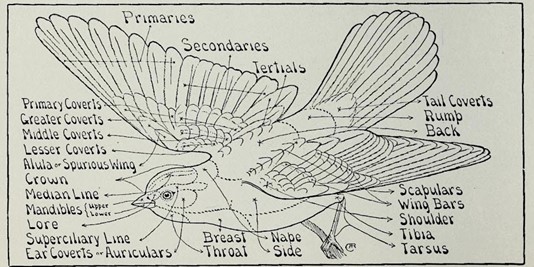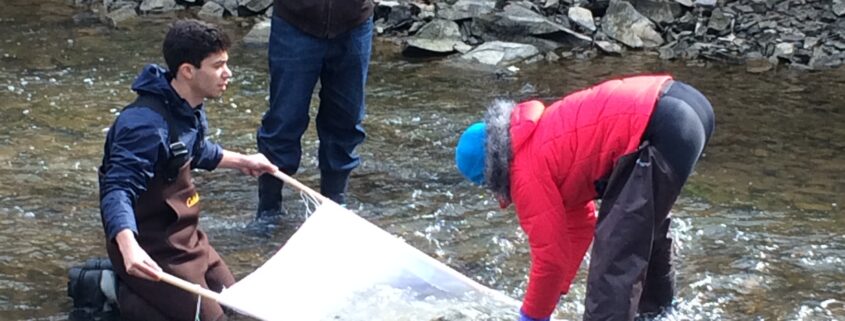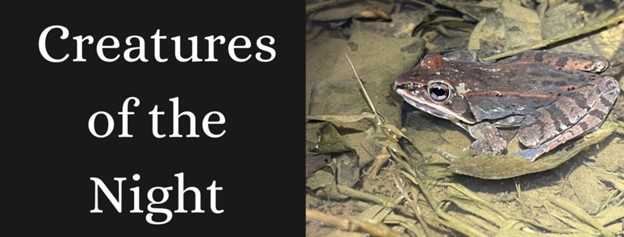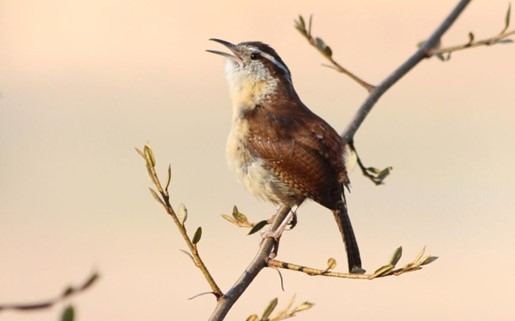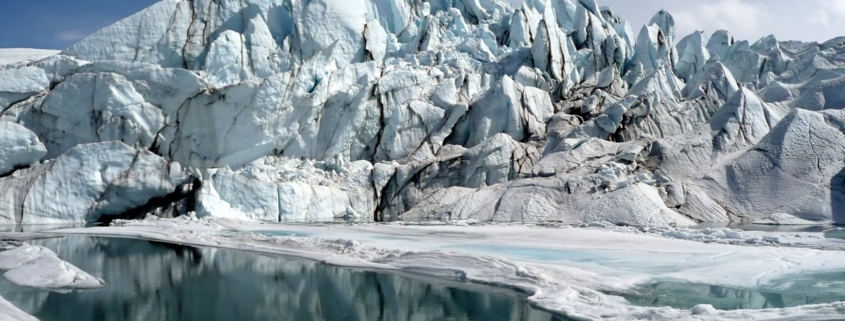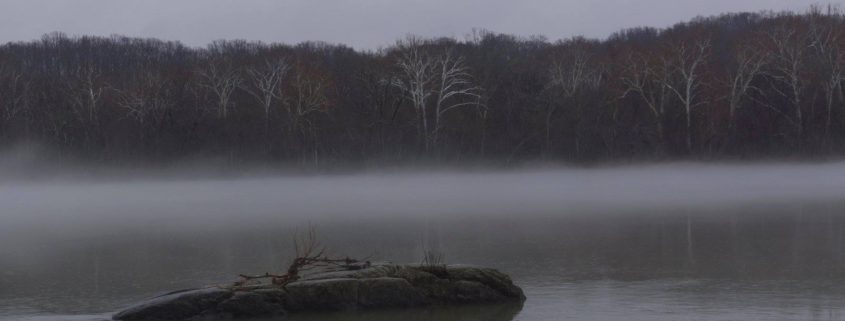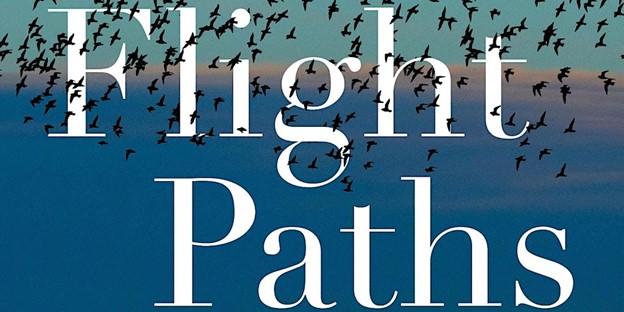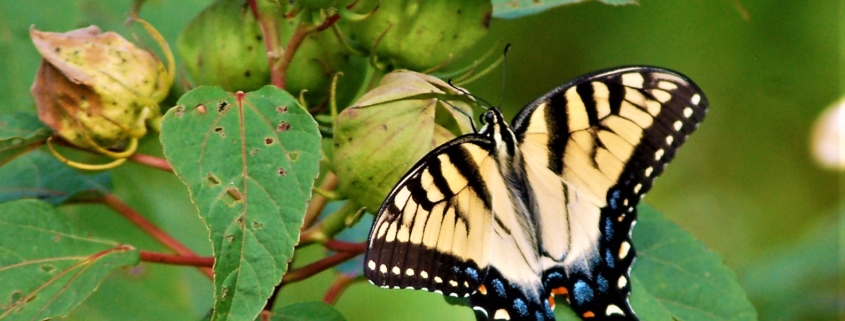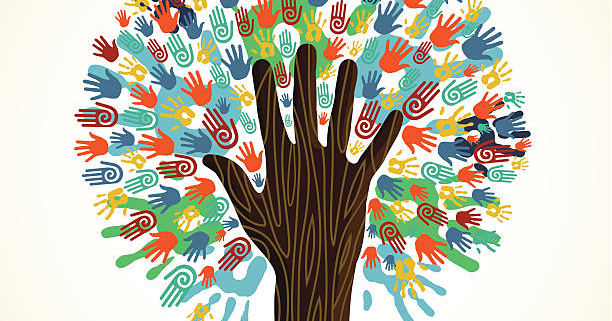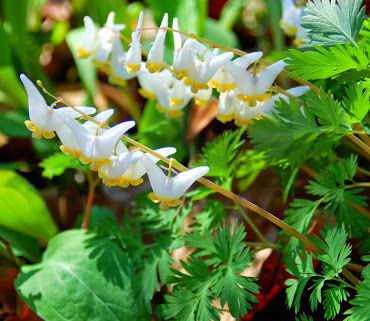Cover photo – Jerry Nissley
FMN would like to shine the spotlight on our Chapter Partners and introduce the partner contacts so you can associate a name with an organization when you receive information from them. This also provides FMN a chance to thank them for their tireless contributions to our chapter over the years.
It makes sense to start off by spotlighting Fairfax County Park Authority (FCPA), that is by far FMN’s most supported Chapter Partner. The venerable Tammy Schwab, who really does not need an introduction, is our FCPA partner contact and an FMN member. She is responsible for many of the FCPA programs and keeps FMN engaged year after year. So please join us in a big thank you to Tammy for the big and small things she does for the chapter!
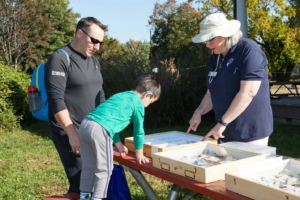
Tammy running the bug identification station at Lewinsville park Bug Fest. This event was supported by FMN. Photo FCPA
In addition to chapter partner contact for the FCPA she has provided extraordinary support to the Chapter from its inception and was recognized with an FMN Trailblazer Award. From her trailblazers award: Tammy played a key role in initiation of the Fairfax Chapter, serving as first Continuing Education Committee Chair and long-term Mammalogy and Interpretation instructor for the Basic Training Course. Tammy’s experience as Manager, Education & Outreach for the Fairfax County Park Authority’s Resource Management Division provides a wealth of knowledge that greatly benefits the chapter. Tammy has made significant individual contributions, including:
• Served as the first Continuing Education Committee chair. She identified training opportunities, evaluated training proposals, and coordinated FMN-oriented training classes,
• Serves as Mammalogy and Interpretation instructor for the Basic Training Course, providing interesting authoritative information both in class and on field trips,
• Taught FMN-oriented Animal Tracking and Wildlife Mapping courses,
• Led a Sully Woodlands walk for an FMN chapter meeting,
• Identifies FMN volunteer service opportunities with FCPA.
Tammy continues to develop and enhance county programs and she would like to promote the newest park initiative and identify a sample of continuing programs that FMN volunteers can get involved with now.
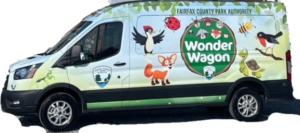
FCPA Wonder Wagon – Photo FCPA
The newest initiative for FCPA and FMNs to partner on is the Wonder Wagon Mobile Nature Center. WONDER stands for Wild Outdoor Nature Discovery Everywhere Revealed.
FMN and FCPA share a mission to spread the knowledge and love of nature to local residents. The purpose of the Wonder Wagon Mobile Nature Center is to bring nature exploration straight to the underserved and underrepresented members of the community. FCPA will enhance current programming by activating the exploration of nature in the community and connecting people with nature where they are. Thanks to the support of Community Partners like the Fairfax Master Naturalists we can meet the community members where they are – Libraries, community centers, events, unstaffed parks and School Age Child Care centers. Through these “Nature activations”, previously underserved members of the community will feel a stronger connection to the nature that is around them where they live and play. This effort will promote equity and community engagement by removing the barrier of accessibility and will result in a deeper connection to nature for our residents.
FMN is currently vested in the Wonder Wagon through a financial donation in 2023 and FMN can now signup as volunteers to support the program in the field. Members interested in volunteering for Wonder Wagon can contact [email protected]
Additional volunteer opportunities in the parks:
Ongoing opportunities to be part of a team:
Youth Program Support; 2-4 volunteers; Primarily weekday mornings, shifts can be 9am-1pm
Share your passion for nature with school aged children at Hidden Pond Nature Center. Help with school programs and public programs for ages 3-11 year olds.Some experience working with kids preferred. Background check required. Must commit to at least one program a month for a season.
Contact [email protected] for more info.
Animal Care:
Help with the care of animals at Hidden Oaks Nature Center, including feeding and watering turtles, snakes, toads, and other animals and cleaning their enclosures. Learn about the natural history of reptiles and amphibians. Training provided. Contact Janet Siddle at [email protected] or 703-941-1065.
Volunteer on Duty (Front Desk Support):
If you love nature and enjoy talking to people, consider volunteering at Hidden Oaks Nature Center’s front desk. You will welcome visitors, orient them to the park, answer questions, and check in program participants. This is an opportunity to learn about the natural resources of the county and share your knowledge. Contact Janet Siddle at [email protected] or 703-941-1065.
Assistant Program Leader:
Help us teach kids and have fun doing it, at your local park! Children learn all about the local environment, nature and history during our programs and while on field trips. This is a wonderful opportunity for anyone with a passion for the outdoors and a drive to help instill it in a new generation. Opportunities are intermittent and based on registration. Contact Janet Siddle at [email protected] or 703-941-1065.
Elklick Preserve (in western Fairfax County near Centreville): has significant openings. It is part of an on-going forest restoration project to restore a rare forest type. It involves using hand tools like loppers and pruners to cut competing vegetation to promote oak and hickory seedlings. The learning opportunities involve forest tree and shrub identification in the winter, spring and summer and to learn about the process of forest restoration. This would be an ongoing effort throughout the year and not a one time event. Training will take place from FCPA staff. Anyone who is interested can contact Owen at [email protected].
Bluebell Fest Saturday, April 6, 10 a.m.-2 p.m. Riverbend Park, Great Falls:
Contact Andrew Wilk at Riverbend park for more information and to volunteer [email protected]
Earth Day Fairfax April 20th at Sully historic site Chantilly VA:
Help the Wonder Wagon at its first public event! To get on the Wonder Wagon volunteer interest list for this and other opportunities contact:
Nikki Zita [email protected] or
Molly Neeson [email protected]


